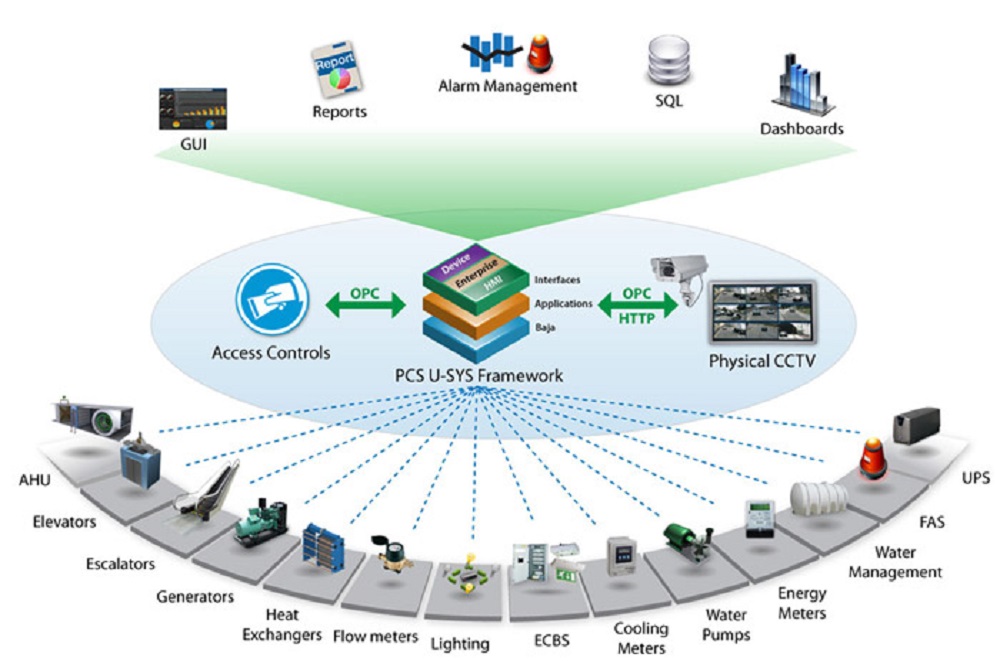Overview:
The Building Management System (BMS) Course is designed to provide participants with a
comprehensive understanding of the concepts, components, and functionalities of building
management systems. BMS is an essential technology used to monitor and control building
services such as heating, ventilation, air conditioning (HVAC), lighting, security, and energy
management. This course emphasizes the integration of these systems for improved
operational efficiency, energy savings, and enhanced comfort.
Course Objectives:
– Understand the fundamental principles and components of Building Management Systems.
– Learn how to design, implement, and maintain BMS for optimal building performance.
– Gain knowledge of energy management practices and strategies to reduce operational
costs.
– Explore various BMS technologies, protocols, and interfaces for effective communication.
– Develop troubleshooting and problem-solving skills related to BMS operations.
Training Content:
Introduction to Building Management Systems:
– Definition and importance of BMS in modern buildings.
– Overview of building automation and control systems.
– Key components and architecture of BMS.
2. BMS Components and Functionality:
– Sensors, controllers, and actuators.
– HVAC systems and their integration with BMS.
– Lighting control systems and energy management.
3. BMS Design and Implementation:
– Steps for designing an effective BMS.
– Selecting appropriate hardware and software.
– Integrating different building systems into a unified BMS.
4. Energy Management in Buildings:
– Understanding energy consumption and its impact on costs.
– Strategies for energy efficiency and sustainability.
– Implementing energy monitoring and reporting systems.
5. BMS Protocols and Communication:
– Overview of common communication protocols (e.g., BACnet, Modbus, KNX).
– Data exchange and interoperability between different systems.
– Networking and cybersecurity considerations in BMS.
6. Operational Management and Maintenance:
– Best practices for maintaining BMS.
– Troubleshooting common issues in building management systems.
– Regular monitoring and optimization of system performance.
7. Case Studies and Practical Applications:
– Real-world examples of successful BMS implementations.
– Hands-on exercises in BMS configuration and management.
– Analysis of building performance data to identify improvement areas.
8. Evaluation and Certification:
– Pre- and post-training assessments to evaluate participant knowledge.
– Completion of a practical project demonstrating BMS skills.
– Issuance of certificates upon successful completion of the course.
Target Audience:
– Facility managers and building operators.
– HVAC and electrical engineers.
– Architects and design professionals involved in building projects.
– Energy managers and sustainability professionals.
– Students and recent graduates in related fields seeking to enhance their knowledge of
building automation.
This course aims to empower participants with the skills and knowledge necessary to
effectively manage and optimize building systems, contributing to energy efficiency,
sustainability, and enhanced occupant comfort.






